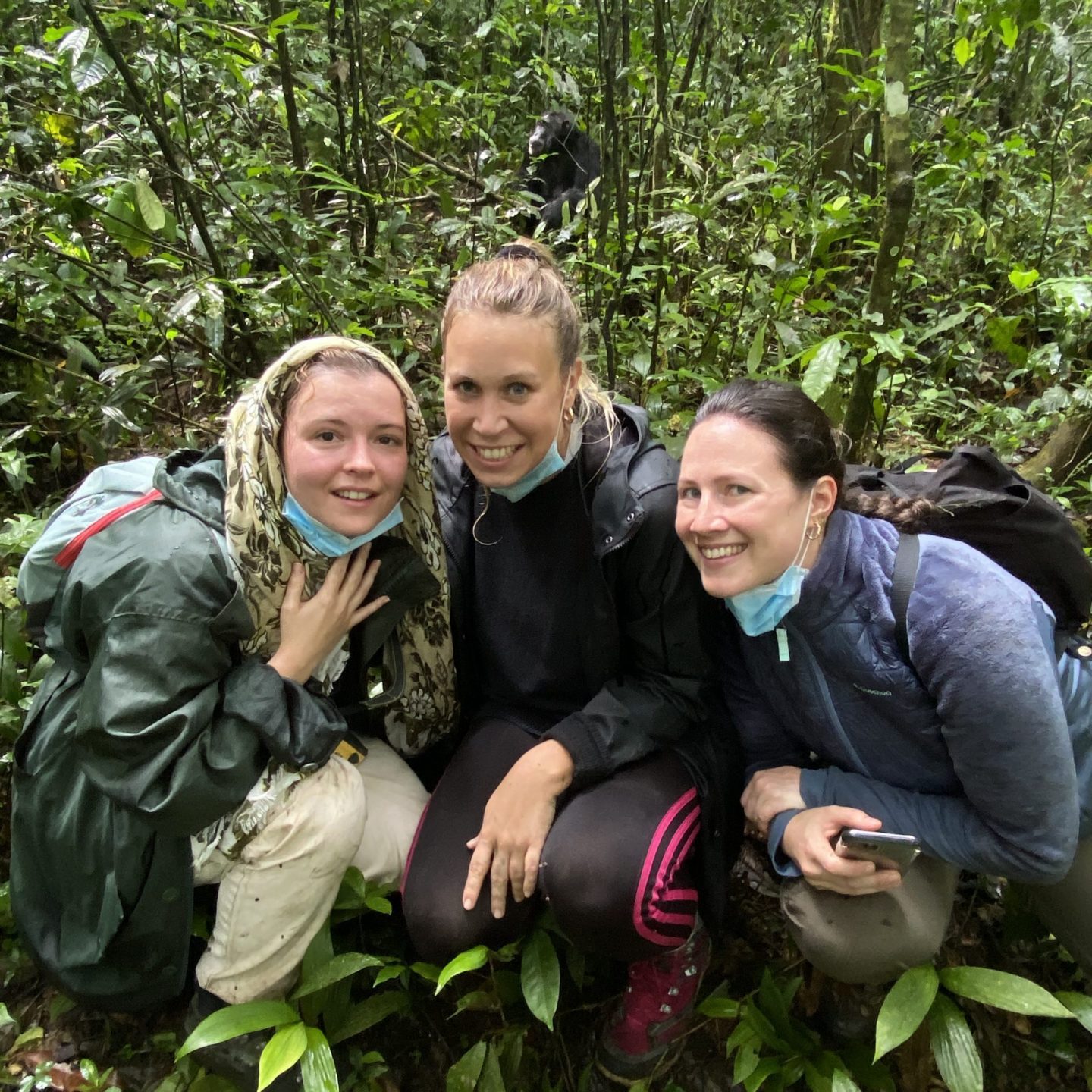
Is Uganda Safe to Visit in 2022?
Uganda is typically safe for tourism and travel. It is regarded as a politically stable nation with secure borders within the East African area and strong internal security forces. Opportunistic crimes, such as petty theft, credit card fraud, and home robbery do occur just as they do in any other country. When you exercise caution and respect local regulations, you can avoid modern criminal risks, terror-prone places, and COVID-19 infections. Are terrorists killing civilians in Uganda? Will my camera be stolen in Kampala’s streets? Is it safe to drive in a car, or should I be concerned about carjackers? Is the food and water safe to consume? Is Uganda Safe to Visit? All of these are typical questions we ask before visiting a foreign country.
It is natural for a traveler to be concerned about traveling to a new location. Uganda is a popular safari adventure destination, with thousands of visitors safely traveling each year to see the strange primates in their primeval tropical rainforests. Every year, approximately 15,000 British nationals visit Uganda, according to UK international travel advice. The majority of visits are trouble-free. Terrorist attacks are more likely to kill you in England or the USA than in Uganda. And, no, Uganda is not at war; it hasn’t been at war since the 1980s. However, the fear of the unexpected can only be alleviated once all of the information is gathered. As a result, this article should act as your Uganda travel advisory.

Regional Security and Terrorism: Is Uganda Safe to Visit?
Because of active security personnel and a cautious citizenry, Uganda has enjoyed long periods of peace for quite some time. For a long time, Ugandan men and women have been at the forefront of collective wars against terrorism, whether it is domestic terror cells like the Lord’s Resistance Army, the Allied Democratic Forces, or the cross-border Al-Shabaab in Somalia.
Unfortunately, regardless of the level of surveillance, a few people manage to get past security and claim innocent lives in the name of their religion. In November 2021, there was a heightened threat of terrorism in the East African region in response to a trio of suicide bombings in Kampala that claimed the lives of the bombers and four nationalities. Following a series of bomb blasts in the same month, the Government of Uganda issued a number of notifications warning of an increased risk of terrorism. The threats, however, have been eliminated. Terrorist strikes can be indiscriminate, even in areas frequented by expats and international visitors. Large groups and public areas could potentially be targets. Regional security forces work together to deny terrorists safe havens, eliminate terrorist financial sources, minimize state vulnerability, and improve emergency readiness and response capabilities.
Uganda is the largest contributor to AMISOM forces under the auspices of the African Union. In that position, Uganda has been at the forefront of the struggle against the terrorist group Al-Shabaab.
Uganda’s surrounding governments have been helpful in locating and apprehending terrorist ring leaders. Within Uganda’s borders, citizens have been mobilized to be attentive and on the watch. These efforts were fruitful, resulting in the detention of terrorist operators before they could carry out their nefarious plans. Uganda continues to pursue terrorists and apprehend them before they bring havoc and hardship to innocent people.
You should be cautious, especially in crowded public places such as hotels, transportation hubs, restaurants, and bars, as well as during major gatherings such as sporting or religious events, and when near State buildings or security infrastructure such as police stations. Previous terrorist attacks and foiled assaults in Uganda have targeted security forces, football stadiums, restaurants, buses, and government facilities. The Uganda Police Force provides notifications on a regular basis, notably around public holidays or religious festivals. You should always be cautious and heed the advice of local authorities.
Security and safety: Is Uganda Safe to Visit?
Crime exists in all places around the world, but it can be avoided by exercising prudence. Although Uganda is a highly safe country, opportunistic offenses such as petty theft, credit card fraud, and home robbery do occur, just as they do in any other country. Victimization is uncommon, and most incidents occur in cities such as Kampala. Please be watchful and cautious in public settings, avoiding drawing attention to yourself and making yourself less vulnerable to pick-pockets.
The Uganda People’s Defense Force (UPDF), sometimes known as the local police, has been increasingly successful in deterring crime through regular patrols and deployment in crime-prone areas. The cops are everywhere, with camouflaged security posted at airports, borders, and public locations. Tourism police, park rangers, the military, and lodge security employees are all present in Uganda’s National Parks and tourist locations to protect tourists’ safety.

Civil Unrest - Political Situation: Is Uganda Safe to Visit?
Travel advisories have previously advised against visiting the Karamojong region of northeastern Uganda. The Lord Resistant Army, an insurgent group that sparked turmoil in northern Uganda in 2005, clashed with Ugandan security forces. The national army drove the rebel faction out of Uganda and into South Sudan, and the region has recovered. Tensions between the government authority and the Rwenzururu Kingdom in West Uganda erupted into violence in 2016. Despite the loss of 100 lives, the situation was stabilized, and the area is now safe to travel.
The overall security situation has improved. The international community, civilian police, and the Ugandan government have all worked together to eliminate any threat posed by these groups. Uganda, like many other democracies around the world, experiences brief periods of political transition. The majority of Uganda’s political upheaval is normally concentrated in Kampala, distant from the country’s outstanding safari attractions. Political violence, strikes, and protests can occur at any time and without warning. Protests, while more commonly regulated, can be confrontational and violent at times. Crowds and demonstrations should be avoided. Following local media updates allows you to stay aware during these occasions and easily escape any situation that could put you in danger.
The Ugandan countryside is as tranquil as the ocean’s depths. However, in this Coronavirus era, urban towns like Kampala are a hub for infections, unpleasant traffic congestion, and inconvenient political demonstrations. If you despise crowds, it would be wise to avoid Kampala. Entebbe, a tranquil hamlet 34 kilometers outside the capital city that houses the statehouse with increased security, is the city into which you fly into the Pearl of Africa. Entebbe is an excellent city for unwinding, strolling, and learning about Uganda. However, in some cases, you’ll fly or drive out of Entebbe right away to visit the countryside sights.
Health and Disease: Is Uganda Safe to Visit?
In the recent COVID-19 (Coronavirus) pandemic, Uganda experienced the same fate as the rest of the world. With all hands on deck, the country has impressively managed the situation, and things are gradually returning to normal.
In 2010, there was a yellow fever outbreak in northern Uganda. Uganda is now battling the Ebola virus with over 50 infections and 16 deaths. The political unrest in the neighboring DR Congo has led to refugees flowing into Uganda hence the transmissions into Uganda. Uganda has a proven history of effective combating of transmissible diseases. Flare-ups of the black plague occurred west of the Nile River. We are all aware of the global Covid-19 pandemic. Uganda is no different. Malaria is a major threat in most places and throughout the rainy season, with the exception of high-altitude mountains above 2,000 meters.
The government’s handling of these epidemics has been impressive over the years.
Quality health services are limited in the locations you visit (especially in the isolated countryside), so visitors should bring their own prescription and preventive medicine, as well as a doctor’s letter detailing the drug. Local medivac services can be prohibitively expensive. Before traveling abroad, please check with your medical insurance carrier to see if your policy covers emergency evacuation charges. Before traveling to Uganda, you must receive the necessary immunizations. We urge that you read this excellent article about keeping an eye on your health while in Uganda.
Road and Traffic Safety: Is Uganda Safe to Visit?
There have been documented road fatalities, although these can be avoided if traffic rules are observed and followed. When driving on Uganda roads, however, you will face irresponsible drivers, pedestrians wandering in the street, cattle in the road, poorly maintained vehicles (lack of brake/indicator lights), poor road conditions, a lack of quasi-traffic lights, and poorly illuminated roads. Even though driving during the day is deemed safer, variable road conditions and reckless drivers can be lethal.
Please apply all defensive driving techniques when driving in Uganda for your safety and the safety of other users at all times. The police enforce traffic laws minimally, but there has been progress. Our drivers at Laba Africa Expeditions are extremely skilled and experienced on Ugandan roads. They understand these roads better and will do all possible to ensure that you have a safe and enjoyable travel.

Natural disasters and environmental hazards: Is Uganda Safe to Visit?
Heavy rains triggering flash floods, landslides, disease outbreaks, and short-term food security mostly caused by drought and other reasons contributing to the root cause—have all been documented. Most people in the northern region controlled by the rebel group (LRA) have little or no cash and can only produce small tracts of land with cattle.
Based on the safety concerns, we can surely answer the question: Is Uganda Safe to Visit?
- There is no travel advisories or travel alert statement.
- There hasn’t been a terrorist assault in Uganda since 2010, thanks to increased security.
- Security mechanisms are in place in public venues such as malls, hospitals, and hotels to safeguard the safety of tourists and Ugandans.
- Any infectious illness epidemic is immediately isolated and controlled, ensuring that all citizens and visitors are safe from contagious diseases.
- When you book with Laba Africa Expeditions, our expert driver guides will assure your safety on the roads as you visit Uganda and have fun.
You must be aware of your surroundings and remain watchful by arming yourself with crime and safety information. Obtaining comprehensive traveling and medical insurance prior to departure will protect you from any unanticipated crises. To avoid food poisoning or cholera, consume meals or beverages from sanitary sources. Many people have reviewed and shared their experiences of visiting Uganda in online forums, noting a secure, comfortable, and inviting environment free of intimidation.
Is Uganda safe to visit? Yes, in our perspective and experience! Uganda is an excellent safari destination. You can experience a safe, stable, and peaceful holiday with your entire family by booking a safari with Laba Africa Expeditions. Don’t just take our word for it; see our Trip Advisor evaluations. When you are received at the airport and are in the hands of a Laba Africa guide or driver throughout your journey to Uganda, you will definitely feel at ease and secure. Do you want to visit Uganda but don’t know where to begin? We can assist!






